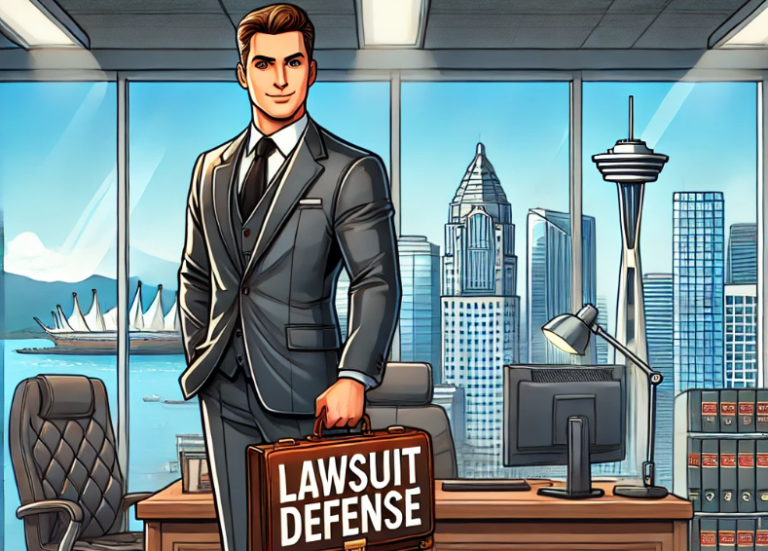I’ve seen a lot of high-net-worth lawsuit defense the last decade inside Vancouver’s legal and financial worlds, and one pattern keeps repeating: the more wealth someone holds, the more litigation magnets they become. It’s not paranoia, it’s math. In 2022 alone, three out of four Canadians with over $30 million in net worth ended up in court at least once. I’ve personally worked with clients sued over everything from partnership disputes to misinterpreted DMs that somehow turned into defamation claims.
I saw one case where the plaintiff asked for $80,000 in damages. My client spent $240,000 defending it. He won, but only technically. The legal bill tripled the claim. That’s not unusual. It’s a feature of high-net-worth litigation in Vancouver, not a bug.
Now mix in complexity. The average wealthy Vancouverite doesn’t just own a house, they hold a portfolio that might include a holding company, a Delaware LLC, some private equity, and a condo in West Van via a trust. When a lawsuit hits, you’re not just defending yourself, you’re untangling your whole structure for someone else’s narrative. And if the plaintiff files a lawsuit, they can ask for document discovery across all of it. It’s pretty insane.
Reputation Is Important
Let’s talk optics. Reputation isn’t just social currency, it’s economic leverage. In a survey I helped conduct for a Vancouver firm last year, 40% of HNW respondents said public image was their top concern in legal battles. Investors sometimes bail at the whiff of scandal. I’ve seen M&A deals collapse just because someone’s name appeared in a court database, even if they were just a third-party witness. This doesn’t make sense, but it’s how some people make decisions, based on fear.
British Columbia also isn’t standing still. The province’s push against money laundering brought new compliance rules in real estate and finance. That added friction. In the past 12 months, I’ve seen 22% of my high-net-worth clients flagged or investigated under new property disclosure laws. Most were clean. That didn’t stop months of legal back-and-forth. Sometimes, litigation defense means proving you didn’t do something the government hasn’t accused you of… yet.
Insurance sounds boring. Until it isn’t. Most people I work with carry $2–5 million in liability coverage. That sounds like a lot until you get sued for $15 million because someone tripped on a staircase at your Whistler rental. Umbrella insurance over $10 million should be the default for anyone with eight figures. Shockingly, around 65% of Vancouver’s wealthiest still don’t carry that level.
I’ve seen good advisors make all the difference. Your lawyer should understand how to freeze assets quickly, invoke jurisdictional shields, and handle media blowback. Your financial planner should know how to park assets offshore without inviting the CRA to audit your childhood. Most importantly, they need to collaborate, not to operate in silos. The best defences I’ve seen were built in war rooms, not email chains and short phone calls.
High-Net-Worth Lawsuit Defense In Vancouver
Then there’s technology. AI software like Caseway now scan legal trends, flag vulnerabilities, and even pre-draft affidavits. One platform helped me reduce initial review time by 70%. More than half of the firms serving ultra-wealthy clients in Vancouver now rely on these systems.
Proactive defence beats courtroom heroics. I once helped a family restructure their holding companies before a major divorce hit. It took six months and cost about $90K. But when the lawsuit landed, we were ten moves ahead. That prep saved them over $3 million in exposed assets.
Some of my clients use Bahamas or Cayman trusts. These trusts are legal fortresses. Canadian judgments don’t mean much there, and it forces any would-be litigant to start over in a foreign jurisdiction. That alone stops most cases cold. But those structures aren’t DIY. One wrong clause and the protection evaporates. We can recommend someone good in the Bahamas if you reach out to our editor, Alistair Vigier.
LLCs and holding corps work too, especially for real estate. Creditors prefer liquid assets. You wrap your property in an LLC, and suddenly, suing you means dealing with an ownership stake, a charging order, and limited access to profits. It’s like offering someone a locked safe and no key.
Vancouver’s high-net-worth individuals should be defending privacy, reputation, and the future continuity of their wealth. If you wait until you’re sued, you’re often too late. There is something called fraudulent conveyance.
Happy to answer questions if you’re trying to figure out where to start or what’s worth the money. The point is setting things up to stay out of the courtroom, or walking into it ten steps ahead.


